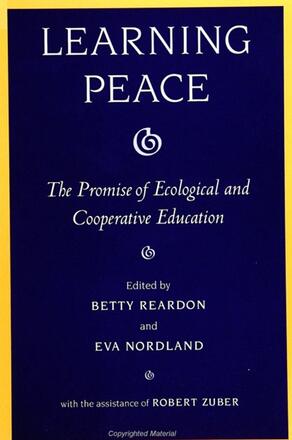
Learning Peace
The Promise of Ecological and Cooperative Education
Alternative formats available from:
Betty Reardon is Director of the Peace Education Program at Teachers College, Columbia University. Long active in a number of international organizations and movements, she has served on the Council of the International Peace Research Association, the Council of the University of Peace, and the International Jury of the UNESCO Prize for Peace Education. Her previous publications are in the areas of women's issues, human rights, alternative security systems, and teaching and learning the skills of peacemaking, including Women and Peace: Feminist Visions of Global Security, also published by SUNY Press. Eva Nordland is Professor Emeritus at the Institute of Pedagogical Research, University of Oslo, Norway.
Reviews
"The most striking feature of this book is the fact that a group of highly qualified scholars and educators collaborated before the dissolution of the Soviet Union exchanging ideas and practical programs for teaching ecological and cooperative education. They modeled the process they advocate. They changed their own thinking to understand the thinking of others. They couched their concerns in a framework of human rights, political and social responsibility, and practical transformations of national educational approaches that are often myopic and competitive. While accenting some positive educational trends within their national borders, they also criticized cultural and educational limitations. " — Anne Shepard, Associate Superintendent of Schools, Catholic Diocese of Kansas City-St. Joseph, Missouri